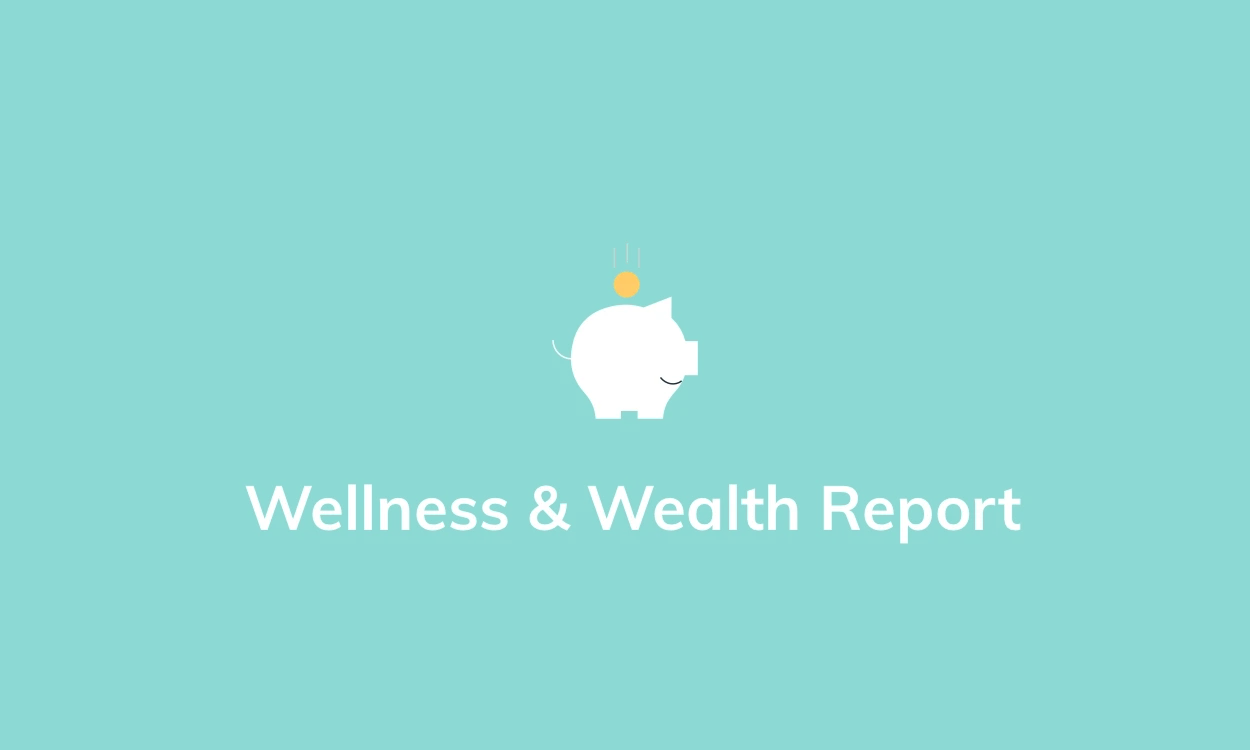The Lively Blog
SIGN UP FOR OUR
Newsletter
Stay up to date on the latest news delivered straight to your inbox
2019 Wellness & Wealth Report
Lively · July 25, 2019 · 3 min read

Lively Wellness & Wealth Report: INSIGHTS FOR EMPLOYERS
Individuals and families across America are feeling the impact of rising medical costs. From choosing a health insurance plan, to postponing a doctor’s visit or foregoing a recommended medical treatment, adults are making tough financial decisions that directly impact their physical health. These costs are projected to rise over the next decade.
Lively’s inaugural Wellness & Wealth Report provides greater understanding of how American healthcare and financial health correlate, and gives powerful insight to employers about employee health and wellness preferences.
2019 Wellness & Wealth Report
Report Details: A survey of 1,000 randomly selected U.S. Adults (ages 18 and older) was conducted from June 5-6, 2019 to gauge physical and financial health decisions across the U.S. Respondents were asked ten questions about their personal finances and knowledge as they pertain to healthcare, health practices, ability to pay for health- related expenses, and insurance coverage. The survey was commissioned by Lively and executed by CITE Research, and is part one of a series of findings about employee wellness and wealth. Part two of the results will be released later this year.
2019 Wellness & Wealth Report
Key Findings
Healthcare coverage is by far the most important employee benefit when it comes to choosing or staying with an employer.
Out of 11 popular employee benefits, including competitive salary and 401(k), almost 40 percent of employees chose healthcare as the most important benefit when thinking of switching jobs or staying at a job.
The majority of Americans (76 percent) rank healthcare in their top three priorities when considering workplace benefits.
Only half of adults go to the doctor regularly or preventatively.
As US adults get older they are more likely to go to a doctor regularly or preventatively – and conversely, younger adults are more likely to only go to a doctor when something catastrophic happens.
Men, married people, and wealthier consumers are more likely to see a doctor preventatively, while people with children are more likely to only go to the doctor when they are sick.
Medical and healthcare costs come as a surprise to a large portion of employees.
Three in four Americans are surprised by how high their medical bills are when they receive them.
One in three employees are unsure how much of their paycheck goes to healthcare costs (including health insurance and out-of-pocket costs).
Employees have a mixed understanding of their employer benefits, and understanding decreases with younger generations.
While close to a third of people surveyed do not have health benefits through an employer, the majority of those who do say they understand their benefits.
Although employees report the best understanding of 401(k)s as a benefit, less than 50 percent completely understand them.
Less than 1 in 3 Americans completely understand any of the following healthcare terms:
Flexible Spending Account (FSA)
Health Maintenance Organization (HMO)
Health Reimbursement Arrangement (HRA)
Health Savings Account (HSA)
High Deductible Health Plan (HDHP)
Preferred Provider Organization (PPO)
Healthcare costs are the highest expense for many U.S. households, making them top of mind for your employees. This, coupled with the fact that healthcare is a top priority for employees when choosing a job, gives employers the unique opportunity to provide more resources and more favorable health benefits in order to attract top talent. As employers, there is a lot to be done to help build knowledge about healthcare, financial preparation, and tools to build wealth.

Benefits
2025 and 2026 HSA Maximum Contribution Limits
Lively · May 9, 2024 · 3 min read
On May 9, 2024 the Internal Revenue Service announced the HSA contribution limits for 2025. For 2025 HSA-eligible account holders are allowed to contribute: $4,300 for individual coverage and $8,500 for family coverage. If you are 55 years or older, you’re still eligible to contribute an extra $1,000 catch-up contribution.

Benefits
What is the Difference Between a Flexible Spending Account and a Health Savings Account?
Lauren Hargrave · February 9, 2024 · 12 min read
A Health Savings Account (HSA) and Healthcare Flexible Spending Account (FSA) provide up to 30% savings on out-of-pocket healthcare expenses. That’s good news. Except you can’t contribute to an HSA and Healthcare FSA at the same time. So what if your employer offers both benefits? How do you choose which account type is best for you? Let’s explore the advantages of each to help you decide which wins in HSA vs FSA.

Health Savings Accounts
Ways Health Savings Account Matching Benefits Employers
Lauren Hargrave · October 13, 2023 · 7 min read
Employers need employees to adopt and engage with their benefits and one way to encourage employees to adopt and contribute to (i.e. engage with) an HSA, is for employers to match employees’ contributions.
SIGN UP FOR OUR
Newsletter
Stay up to date on the latest news delivered straight to your inbox
